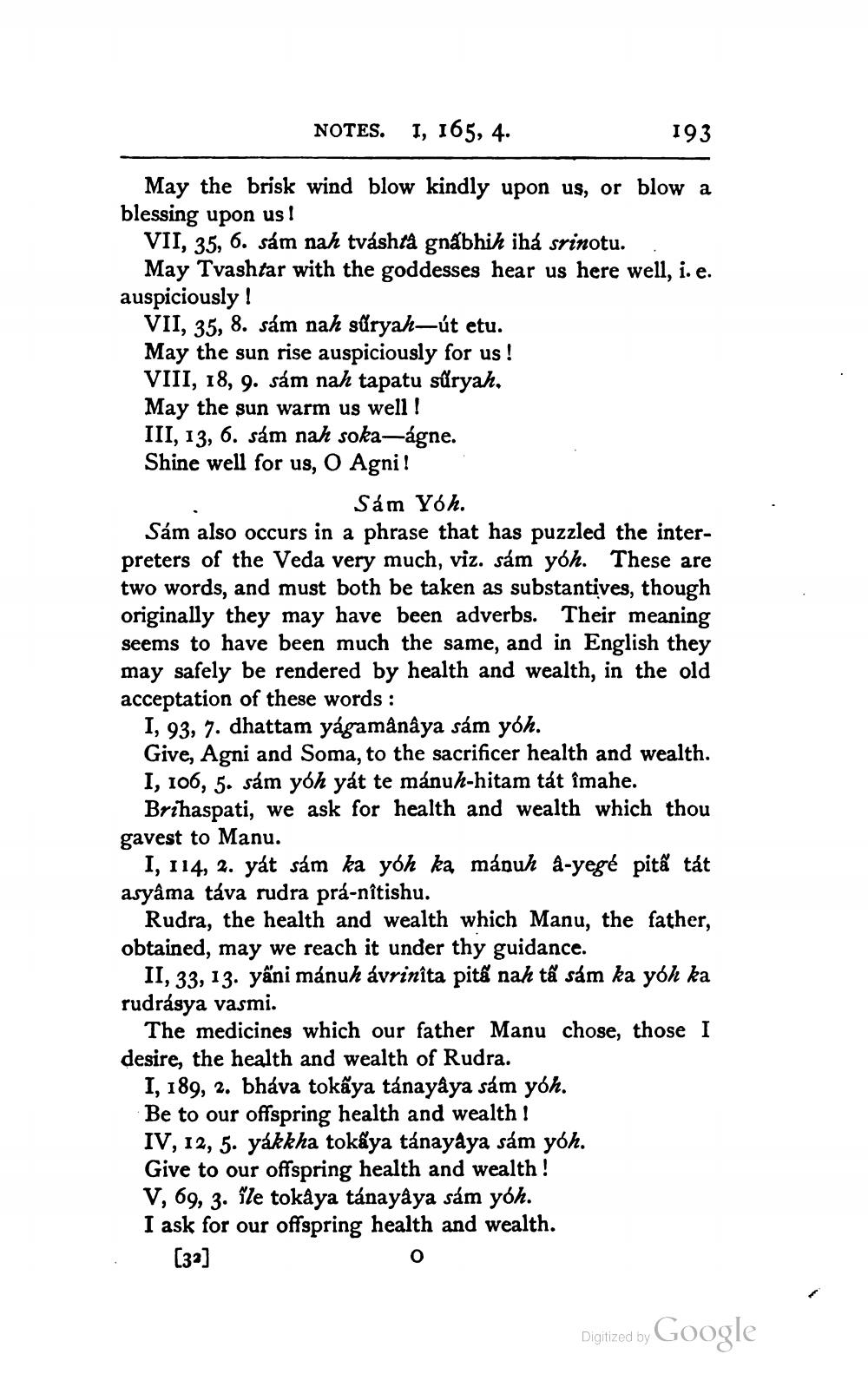________________
NOTES. I, 165, 4.
193
May the brisk wind blow kindly upon us, or blow a blessing upon us !
VII, 35, 6. sám nah tváshtà gnábhih iha srinotu.
May Tvashtar with the goddesses hear us here well, i.e. auspiciously!
VII, 35, 8. sám nah sůryah—út etu. May the sun rise auspiciously for us! VIII, 18, 9. sám nah tapatu süryah. May the sun warm us well! III, 13, 6. sám nah soka-ágne. Shine well for us, O Agni!
Sám Yoh. Sám also occurs in a phrase that has puzzled the interpreters of the Veda very much, viz. sám yoh. These are two words, and must both be taken as substantives, though originally they may have been adverbs. Their meaning seems to have been much the same, and in English they may safely be rendered by health and wealth, in the old acceptation of these words :
I, 93, 7. dhattam yagamânâya sám yoh. Give, Agni and Soma, to the sacrificer health and wealth. I, 106, 5. sám yoh yát te mánuh-hitam tát îmahe.
Brihaspati, we ask for health and wealth which thou gavest to Manu.
I, 114, 2. yát sám ka yoh ka mánuh a-yegé pitã tát asyâma táva rudra prá-nîtishu.
Rudra, the health and wealth which Manu, the father, obtained, may we reach it under thy guidance.
II, 33, 13. yâni mánuh ávrinîta pitä nah tã sám ka yoh ka rudrásya vasmi.
The medicines which our father Manu chose, those I desire, the health and wealth of Rudra.
I, 189, 2. bháva tokấya tánayâya sám yoh. Be to our offspring health and wealth! IV, 12, 5. yákkha tokấya tánayaya sám yoh. Give to our offspring health and wealth! V, 69, 3. ile tokaya tánayaya sám yoh. I ask for our offspring health and wealth.
[32]
Digitized by
Digitized by Google




